#Diaspora
Text
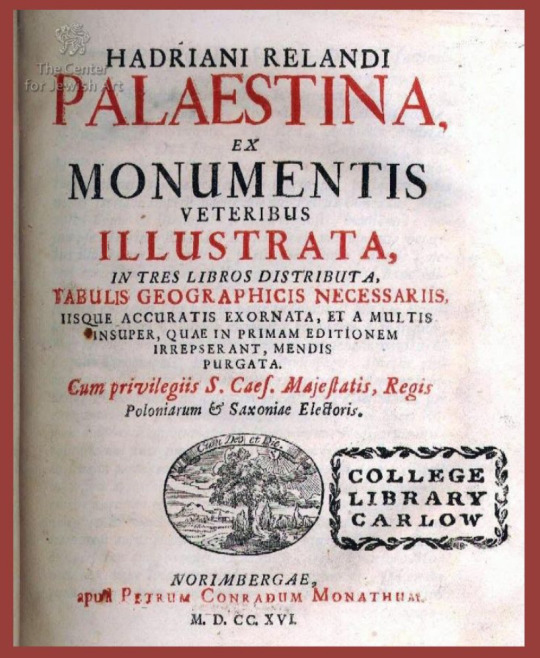
This book is written in Latin by Adriani Rilandi In 1695 describing in great detail, what was then called Palestine. He visited the entire region, ~2,500 towns, and recorded a census.
Rilandi was a geographer, cartographer, traveler, philologist, he knew several European languages, Arabic, ancient Greek, Hebrew.
Here are the primary facts & conclusions:
* The country is mainly empty, sparsely populated, the main population is Jerusalem, Akko, Tsfat, Jaffa, Tveria and Gaza.
* Most of the population were Jews. That's right. Jews. Everyone else is Christians, aside from very very few Muslims, mostly Bedouins.
* The only exception is Nablus (now Shchem), where approximately 120 people from the Muslim family Natsha and approximately 70 "shomronims" (Samaritans).
* In Nazareth, the capital of Galilee, lived approximately 700 people - all Christians.
* In Jerusalem there were about 5,000 people, almost all Jews and a few Christians.
* In 1695, everyone knew that the origin of the country was Jewish.
* There is not a single settlement in Palestine that has Arabic roots in its name.
* Most settlements have Jewish originals, and in some cases Greek or Roman Latin.
* About 550 people lived in Gaza, half of them Jews and half Christians.
Jews were successful in agriculture, especially in vineyards, olives and wheat, Christians were largely engaged in trade and transportation.
The book completely refutes theories about "Palestinian traditions", "Palestinian people" and leaves almost no link between the land and the Arabs who even stole the land's Latin name (Palestine) and took it for themselves.
And now "Free Palestine" people, remind me, please, why are you trying to free Palestine from it's original indigenous people (Jews) and give it to colonizers and occupiers?
#Palestine#Palestinian#Hamas#israel#secular-jew#jewish#judaism#israeli#jerusalem#diaspora#secular jew#secularjew#islam#Isis#boko haram#al shabab#muslim brotherhood#Akko#galilee#Jaffa#Gaza#Israelis#judea#Samaria#JUDEAN's#adrinani rinaldi
48 notes
·
View notes
Text
Dayenu
So, for my job, I used to write things with a Rabbi... like emails and social media posts, etc...
A few years ago, at the first COVID Passover, there was no travel or social gathering, and very few people were able to visit family to celebrate the holiday. People were alone for their Seders and it was a new and isolating experience. Knowing how difficult this would be, I looked up some speeches and opinion pieces about Passover that might be inspiring and maybe lift some spirits...
I wish I could remember the Rabbi, but one write up was about how we say Dayenu (translated as, "It would have been sufficient"). Dayenu recounts all the wonderful things Hashem has done for the Jewish people and basically breaks it down that if Hashem had ONLY done this one thing for us, it would have been sufficient. It's a long list and one of them is, "If Hashem had brought us to Mount Sinai and not given us the Torah, it would have been sufficient." But that raises the question of what would be the point of gathering the Jewish people to Sinai and NOT giving us the Torah?
The answer is: Because this was the first time we, the Jewish people, had been gathered together specifically as the Jewish people. It was the first time we were gathered as a joint community.
I wrote how this related to us being isolated during COVID during the holiday... How did I connect this?
Even if we are sitting alone in our homes, we are all doing that together. All of us, all the Jewish people around the world - in the diaspora, in Israel, all the same nights and doing the same basic things (though traditions vary). We are still the Jewish people. We are still gathered as a joint community. We are still all connected to each other through this holiday - telling the same story of our freedom from slavery. We are joined by an invisible bond to all our fellow Jews with our identity intact, surviving thousands of years, telling our story year after year.
It was a call to remember we are not alone, even when we are alone.
I think about it again now because I see so many Jews on this site and on other media talking about how they feel isolated and alone.
I hope we all remember that we are joined together by that invisible bond still. That as we sit at our Seders and telling our story, there are millions of others who are doing the same and that we are still here as a community. We drink our wine (or grape juice or what have you) and dip our bitter herbs into a mixture of apple/nuts/wine/dates (or d'vash or whatever you use) for morar... We sing Dayenu and welcome Eliyahu... we do so separately and together... with family, or with friends, while hiding on college campuses, or in hotels with catered meals, at big tables and small, for the first time or for the 180th time, with chairs full and with empty chairs for the missing...
And I hope that for those that are feeling alone can somehow read this and know that they aren't alone. We are here with you. We are Jews with you. We are a community and we survive by telling our story every year together.
Sending you all love and hope for happiness and peace.
May it be sufficient.
18 notes
·
View notes
Text
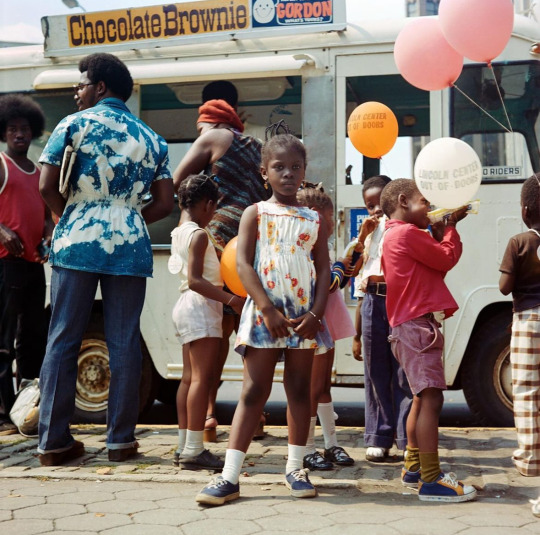
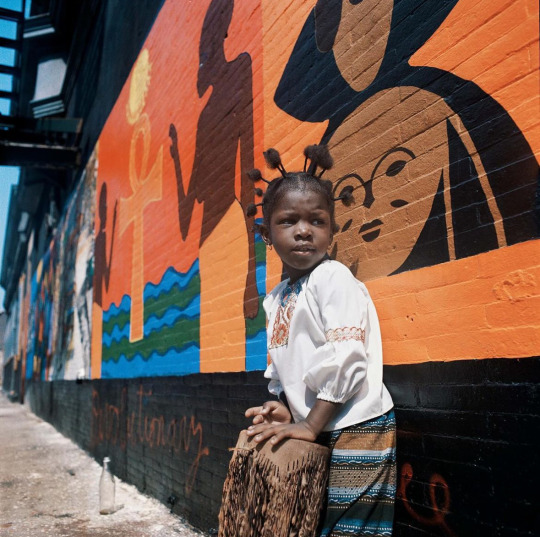
Portraits of Ndola Brathwaite, daughter of Kwame Brathwaite (1938-2023), sporting traditional “akaba” and “ajakolo” hairstyles in Harlem, NY
Courtesy of Kwame Brathwaite [@kwamebphoto]
564 notes
·
View notes
Text
FRIENDS — PLEASE SHARE!
The Sholem Aleichem Cultural Center in the Bronx was recently the victim of antisemitic vandalism. They have started a GoFundMe to cover cleaning costs. They need our help! The center is a vital Yiddishist organization that has been serving New York for over 50 years, and they are in desperate need of financial assistance. Please reblog and share widely!!!! A gitn shabes.
499 notes
·
View notes
Text
#fit girls#hot as fuck#thick babe#thickwomen#dm me for my content#arabian#arabic#art#thicc girls#رقص شرقي#رقص مصري#رقص#رقص اغراء#رقص بنات سعوديات سكس عربي#رقص خليجي#رقص سكس#رقص سوريات#رقص شامي#رقص عراقي#رقص عربي#arabic7up#latin#german#diaspora#spanish
183 notes
·
View notes
Text
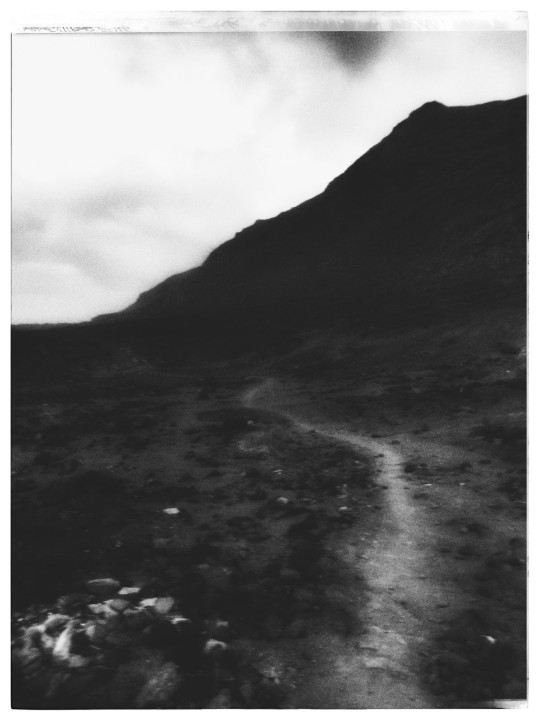
diáspora | victor m. alonso
#photographers on tumblr#poets on tumblr#víctor m. alonso#vimalsu999#isla negra#diaspora#poema de amor#amor#poema de amor a mi manera
188 notes
·
View notes
Text
It means a lot to me that Acau and Jungryeok were so supportive of Tina whenever she tried speaking Korean. Being a diaspora is hard, especially when you're still learning your family's language cause they didn't teach you it growing up; its nice seeing them encourage her and wanting to help her get better at it. If you're in the same boat, don't be ashamed of it, multi-ethnicity is its own unique blend of cultures and its wonderful, and if learning your family's language is something you've been wanting to do just go for it! Don't be afraid of the hurdles, go at your own pace and remember that you're no less your culture because you were raised somewhere else. Sincerely, someone who is very behind on their portuguese studies😁
200 notes
·
View notes
Text
A companion to this poll.
(Once again, though I should not have to say this: this is not a post for political discourse, whatever your perspective. And it is most definitely not a post for political discourse from non-Jews.
You are more than welcome to respectfully share your reasons for your response. Using the poll as a platform for debate — or for criticizing others for their answers — will result in a block. 👍)
#polls#poll#jumblr poll#jumblr#frumblr#judaism#israel#diaspora#eretz yisrael#aliyah#making aliyah#dandelion polls
153 notes
·
View notes
Photo
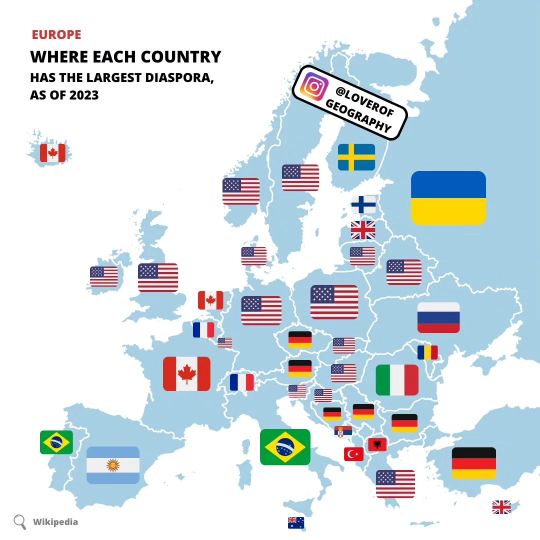
Where the countries on this map have the largest diaspora as of 2023.
Example: the largest German diaspora lives in USA
by loverofgeography
320 notes
·
View notes
Text
The Islamic regime of Iran has ordered the execution of rapper Toomaj Salehi, a hip hop star with over 2 million followers. He is already in jail on a 6 yr sentence, now he's going to be executed.
Because Islam. I wonder how many protests on American campuses will ensue?

#israel#secular-jew#jewish#judaism#israeli#jerusalem#diaspora#secular jew#secularjew#islam#Islamic#Islamist#Islamic jihad#Iran#mullahs#ayatollahs#ayatollah#religion of peace#religion of death
20 notes
·
View notes
Note
I’m Jewish through my dad but I wasn’t raised in the community(i learned what Purim was two weeks ago, i was fully not in it), so when I got to college last august I decided to really dive in and it’s been a beautiful sort of homecoming for me. I joined SAEPi and got into Chabbad leadership at my campus, and I’m almost at the point where I can do the Chabbad Shabbat prayers before and after dinner without stumbling over my words. Gonna surprise my grandma if I see her in the summer. Anyways.
When October 7th happened it was a shock to my system, because I was a baby Jew barely getting my feet. My parents never mentioned antisemitism to me as something that could affect me in the future, it was always a thing of the past. But I was right there standing in the doorway between jew-ish and Jewish, and it pushed me over the edge. I had many friends with family in Israel. I had a couple friends whose friends died in the attack. Everyone in that group was my family. It felt personal.
When the march in dc happened I went with one of my friends, and it was sad, but amazing to see in person how strong we are. In the plane terminal on the way home he and I got cornered and called baby killers, among other things, because he was wearing a kippa and his Israeli first responder coat. That was my first time experiencing antisemitism and it was terrifying, even though I didn’t get hurt. It was terrifying even though my friend was built like a tank and would’ve protected me. It was terrifying just to sit in the train car with him and watch a woman stare at him with wide eyes like he was some kind of criminal. I stepped closer to him as if to remind her he’s human. I stared back at her with just as much fear and watched her snap out of it, confused.
Last week was holocaust awareness week at my college, and one of the things I did was spend a couple hours in the plaza reading the names of people that died. I found 34 Feldmans and Fotts. I found family names, Chana and Fayge and Jeshua and Sophia Feldman one after the other, and still am wondering if that was part of my family that didn’t make it to the US in time.
I called my grandma and asked for everything she could remember about her family lineage and how we got here, everything she had from that part of her life. I thought that there would be plenty to lean into, family recipes and heirlooms and stories, but there was barely anything. She has a Star of David necklace and a ton of repressed memories, next to nothing else. The recipes I could find were through my great aunt, some short instructions from my great grandmother on the back of a letter she sent to the aunt about what to ask for from a kosher butcher.
My family made it here in 1915 and 1921, they escaped before the holocaust, but they still weren’t untouched because of the ways they were ostracized and othered when they got here. My grandmother will barely admit she’s Jewish because none of her kids passed it on, it’s easier for her to let it go. I didn’t understand this until I realized that one couldn’t be hurt by the grief and pain of a family they aren’t part of.
Even those that survive are not left unscarred.
How could this not be personal? How could it not be generationally affective when it’s pushed so many to minimize their Jewishness out of self preservation? Raise their kids thinking they aren’t Jewish and hope their names never end up on a list of living or dead Jews? People still don’t see us as human. the antisemites still want to scar us. They want us to forget who we are.
It’s unreal to me when goyim act like American Jews in the current day are unaffected by the past and safe from antisemitism. I’ve been here less than a year and have been screamed at in an airport, have uncovered serious intergenerational trauma, and realized that of my Jewish family I have nothing to hold on to but a torn in half piece of paper with a sentence long tangent about brisket.
We are strong and we will outlive them, but god are we still fucking fighting for our lives.
.
#jewish vents#antisemitism#diaspora#long post#Jewish#judaism#this is an amazing post anon I'm sorry I lack the words to respond#thank you so much for sharing
114 notes
·
View notes
Text
Just discovered that Henna is also a jewish(israelite) thing and that the henna plant was in the torah and that it symbolizes forgiveness and absolution. I thought it was an arab thing and mizrahi jewish traditions but no its full jewish tradition and symbol!!

Ngl it kinda makes me giddy inside to discover new(for me) native ancient jewish traditions that doesn't fall with the diaspora
#israel#jumbler#am israel hai#jewish#jews#ישראבלר#Hebrew#israelites#Ancient israel#Ancient jews#jewish traditions#jewish history#Judea#יהדות#עם ישראל חי#עם הנצח#jumblr#Henna#Torah#Jewish bible#Bible#History#traditions#I love the jewish nation#diaspora
78 notes
·
View notes
Text
Are there Black dialects of Spanish?

Some people got a surprising result after taking an MIT dialect quiz. It was meant to guess what U.S. dialect the test taker spoke and the person's native language. As results started coming in, many Spanish speakers saw their English dialect had been marked as “U.S. Black Vernacular/Ebonics”
But what's the connection between speaking Spanish and U.S. Black Vernacular?
In the United States, dialects spoken by African Americans are sometimes referred to as Black English, African American Vernacular English, or even Ebonics. Though the terms have had different levels of popularity, having a specific name at all has given African Americans the ability to reclaim their language practices as a joyous part of their identity.
But much less common are terms and discussions about Blackness and Black language beyond English. If Black English dialects exist, are there also Black forms of other languages due to colonization? For example, are there Black Spanishes and Black Portugueses, too? Read more here.
Source: Are there Black dialects of Spanish? by Aris M. Clemons
Visit www.attawellsummer.com/forthosebefore to learn more about Black history.
Need a freelance graphic designer or illustrator? Send me an email.
#black history#Afro-Latino#diaspora#African diaspora#dialects#linguistics#race#identity#language#Spanish#AAVE#ebonics#African American Vernacular English
103 notes
·
View notes
Text
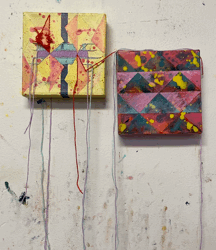

Part of my ongoing project about a cacophony of thoughts, a select few being: the impact of colonialism on the colonised, ancestral memory, what it means to be a part of a diaspora… not belonging anywhere… belonging everywhere, How the ancient trade routes connected us all… and the list goes on….
#artists on tumblr#painting#wip#abstract#contemporary art#contemporary painting#diaspora#embroidery#representation matters#geometric#pattern
121 notes
·
View notes
Text
Dom a Lloyd : Cymru Heddiw
youtube
Hiiii!! Please share this. This is a cool video regarding Black Welsh speakers and some of the progress and some of the obstacles that have been happening in the country of Wales in regarding to Black Welsh people. Everyone can be a part of revitalizing a language and in regards to revitalizing indigenous languages (like Welsh) anti-Blackness should have no place in the process. This is something I think no one really talks about and I LOVE this YouTube channel it needs more subscribers for sure!!
#welsh#black culture#black people#black girl magic#wales#celtic#welsh language#cymru#cymraeg#black pride#black history#indigenous#indigenous languages#indigenous issues#diaspora#intercultural#welsh culture#celtic pride#Youtube
175 notes
·
View notes
Text
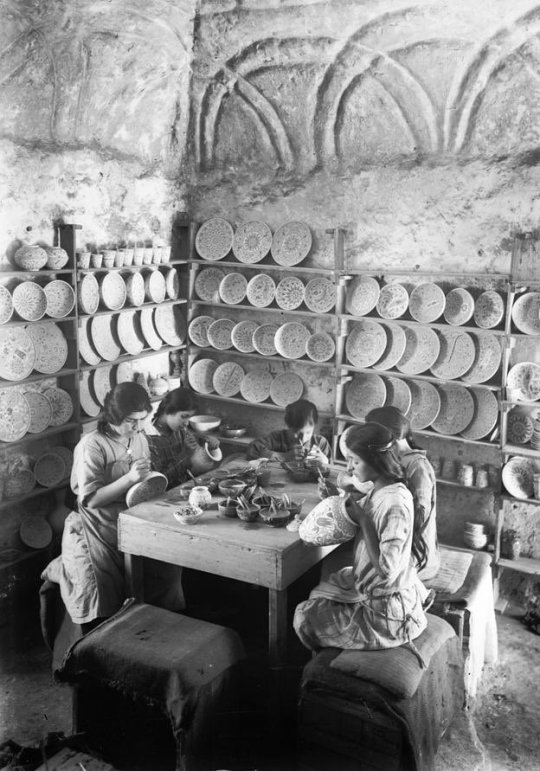
Armenian women painting ceramics at the workshop of David Ohanessian, Jerusalem, Palestine, 1920s.
2K notes
·
View notes